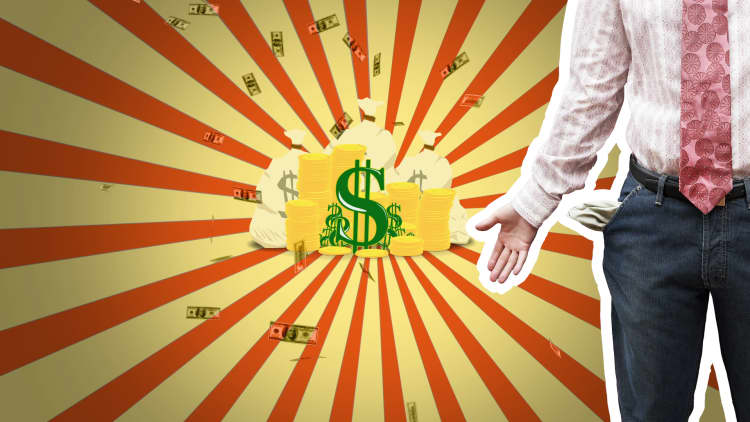The person holding the winning $245.6 million Powerball ticket is likely discovering that New York isn't the best place to hit the jackpot.
Not only will the ticket holder face state and city lottery taxes that are among the highest in the nation, remaining anonymous might be impossible. While a trust can be created to claim the prize, the New York Lottery will likely release the winner's name, said Jason Kurland, a partner at Rivkin Radler, a law firm in Uniondale, New York.
The winning ticket in Saturday night's Powerball drawing was purchased at a Stop & Shop in Staten Island. The prizewinner will have the choice of receiving the money as annual payments over 30 years or taking a lump sum of $147.8 million.
Of course, that advertised figure isn't the take-home amount. If the winner goes with the lump sum, the federal tax withholding of 25 percent would shave off nearly $37 million from that amount right off the bat.
On top of that, New York State imposes an 8.82 percent tax on lottery wins. New York City — which Staten Island is part of — slaps an extra 3.867 percent on such income. Combined, that means another 12.7 percent — nearly $18.8 million — will go immediately to taxes.
In other words, the total federal and state/city taxes of about $55.8 million means about $92 million would go to the winner. And once tax time rolls around, additional taxes will likely be due.

Experts say the first step after winning big is to assemble a team of professionals who are experienced in helping lottery winners. That includes an attorney — this should be the first call — an accountant and a financial advisor. These experts should be chosen carefully.
As for trying to maintain a sense of privacy, here are some tips for whoever is holding the winning ticket.
Contain yourself
Your first urge might be to share your exciting news with, well, the world. However, the fewer people who know, the better.
"Obviously it may be impossible to keep it from immediate family, but news like this travels quickly," said Kurland, who specializes in helping lottery winners.
Past winners have discovered the hard way that long-lost friends and relatives can come out of the woodwork looking for a piece of the prize. And it can happen even if you claim your money anonymously.
"Try to keep the circle of people who know as small as possible," Kurland said.
More from Personal Finance:
Why ghosting a potential employer is a huge no-no
Your debts and shopping could become an addiction. Here's what recovery looks like
Autonomous vehicles won't only kill jobs. They will create them, too
Get off the internet
If you won't be able to remain anonymous when you collect your winnings, shut down your social media accounts in advance, Kurland said.
"The media will try to find as many pictures of a winner as possible, and social media is the first place to look," Kurland said. "You also want to make sure there's as little personal information out there like your phone number or address."
While any determined snooper or scammer could probably track down that information, you don't want to make it easy for them.
Plan an escape
Kurland said he advises big-jackpot winners to skip out the day they claim their prize.
"Just being out of town for a few days can help," Kurland said. "In this 24-hour news cycle, the interest in a winner will hopefully disappear after a few days. If you can avoid being around for a week, you might be able to escape the initial exposure."


